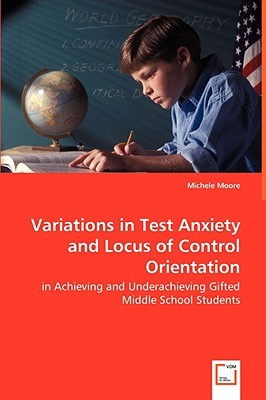
- We will send in 10–14 business days.
- Author: Michele Moore
- Publisher: VDM Verlag Dr. Mueller E.K.
- Year: 2008
- Pages: 92
- ISBN-10: 3639057775
- ISBN-13: 9783639057775
- Format: 15.2 x 22.9 x 0.5 cm, minkšti viršeliai
- Language: English
- SAVE -10% with code: EXTRA
Variations in Test Anxiety and Locus of Control Orientation - in Achieving and Underachieving Gifted Middle School Students (e-book) (used book) | bookbook.eu
Reviews
Description
This study investigated the prevalence of test anxiety and locus of control orientation in three groups of middle school students: Achieving Gifted (AG), Underachieving Gifted (UAG), and Nongifted (NG) students. Although none of the groups received extreme scores on either instrument, a 3 x 2 MANOVA indicated significant differences between the groups by gender and achievement classification (AG, UAG, and NG). Underachieving gifted students were more externally oriented than achieving gifted students. There was also a significant difference in the locus of control orientation between achieving gifted and nongifted students; nongifted students were more externally controlled than achieving gifted students. In regards to underachievers, males were more externally controlled than females. Regarding test anxiety, females consistently reported higher levels of anxiety than males. Findings suggest the need for scho ol interventions to reduce test anxiety among females and to assist students in developing the thought processes that give them a sense of control over the events in their life, in particular, their academic performance.
EXTRA 10 % discount with code: EXTRA
The promotion ends in 23d.04:11:29
The discount code is valid when purchasing from 10 €. Discounts do not stack.
- Author: Michele Moore
- Publisher: VDM Verlag Dr. Mueller E.K.
- Year: 2008
- Pages: 92
- ISBN-10: 3639057775
- ISBN-13: 9783639057775
- Format: 15.2 x 22.9 x 0.5 cm, minkšti viršeliai
- Language: English English
This study investigated the prevalence of test anxiety and locus of control orientation in three groups of middle school students: Achieving Gifted (AG), Underachieving Gifted (UAG), and Nongifted (NG) students. Although none of the groups received extreme scores on either instrument, a 3 x 2 MANOVA indicated significant differences between the groups by gender and achievement classification (AG, UAG, and NG). Underachieving gifted students were more externally oriented than achieving gifted students. There was also a significant difference in the locus of control orientation between achieving gifted and nongifted students; nongifted students were more externally controlled than achieving gifted students. In regards to underachievers, males were more externally controlled than females. Regarding test anxiety, females consistently reported higher levels of anxiety than males. Findings suggest the need for scho ol interventions to reduce test anxiety among females and to assist students in developing the thought processes that give them a sense of control over the events in their life, in particular, their academic performance.


Reviews